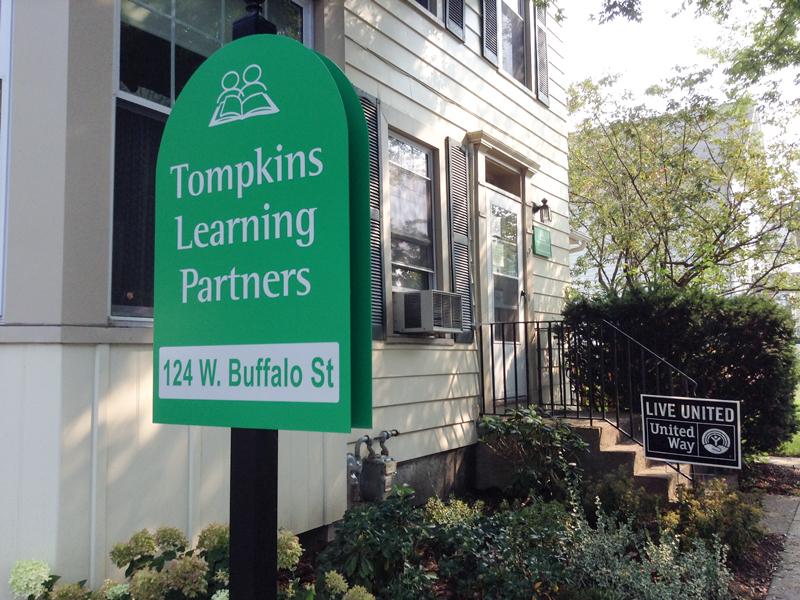Tompkins Learning Partners, Inc. is one county organization that works with adult education. Shannon Alvord, program assistant for outreach and recruitment at TLP, said the organization works to increase literacy in its students, who are primarily adults and incarcerated youth.
In previous years, TLP has seen an increase in students in the fall months. According to Alvord, adults with children have more time to receive tutoring when their kids return to the classroom, which partially accounts for the enrollment increase. Another reason, Alvord said, is that some students continue to associate the fall with “back to school” even as adults.
TLP has seen a recent increase in students looking for assistance in earning their high school equivalency, Alvord said. In January 2014, the Test Assessing Secondary Completion (TASC) replaced the GED exam in New York State.
“It’s modeled on the Common Core stuff, so it’s like a totally different test,” Alvord said. “[For] people who went through schooling before Common Core was initiated and who are trying to get their high school equivalency, it’s super confusing. So we’ve been getting a large increase in students who are interested in applying for that.”
Helen Ranck, the English as a Second Language coordinator at TLP, said students come in with a wide variety of objectives.
“Adults bring life, work, family and other experiences to the table and if they trust you enough to share these, you can utilize what they already know through their experiences to help them get to their learning goals,” she said.
Along with skill-based classes that help with things like improving literacy and passing driver’s tests, employability is a major focus for adult education organizations.
“The trend in Ithaca, and probably it’s the trend nationally, for all human service agencies has been a focus on employment,” Alvord said. “Skillbuilding has become a huge focus, and we have done our part to come up with curriculum for job skill training and employment.”
“Adult illiteracy is kind of one of the hidden issues,” Alvord said, describing the adult education climate in Tompkins County.
According to the 2003 National Assessment of Adult Literacy, which was conducted by the U.S. Department of Education, 10 percent of the Tompkins County population lacked “basic prose literacy skills.” This was lower than the national average of 14 percent.
Inmates at Auburn and Cayuga Correctional Facilities have access to adult education courses through the Cornell Prison Education Program. However, the program requires an admittance exam, so it does not cater to illiterate individuals.
For those prisoners enrolled, CPEP brings basic liberal arts education, supports inmates’ academic ambitions and prepares individuals for successful re-entry into society.
Prisoners involved in education programs have a 43 percent lower chance of returning to prison than those who are not, according to “Evaluating the Effectiveness of Prisoner Education,” a 2013 RAND Corporation study.
Aubrie James, a teacher’s assistant at CPEP and Cornell University grad student, said that education can certainly help adults be more employable but can also help them think more positively about themselves.
“The person you’re teaching develops a sense of agency and a sense of worth outside of whatever other axes they determine their worth on,” James said.













